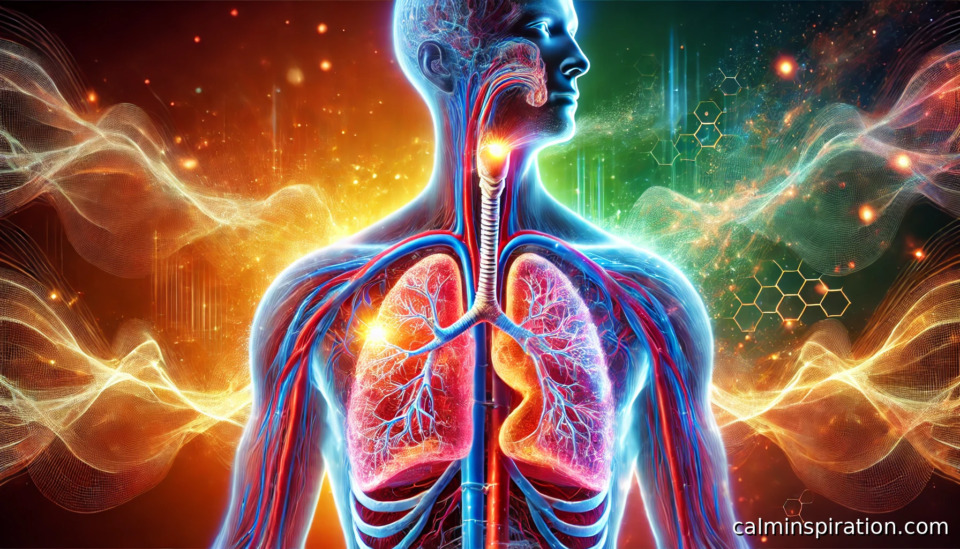Breathing is the automatic and essential process of taking in oxygen and expelling carbon dioxide. It is controlled by the respiratory system, primarily involving the lungs, diaphragm, and airway passages. This continuous cycle ensures that our bodies receive the oxygen needed to sustain life while eliminating waste gases.
How Breathing Works
The act of breathing, or respiration, consists of two main phases:
- Inhalation: The diaphragm, a dome-shaped muscle below the lungs, contracts and moves downward, creating space for the lungs to expand. This allows oxygen-rich air to enter through the nose or mouth, travel down the windpipe (trachea), and fill the lungs.
- Exhalation: The diaphragm relaxes and moves upward, reducing lung volume and pushing carbon dioxide out through the airway.
Types of Breathing
Breathing patterns vary depending on the body’s needs. Some common types include:
- Diaphragmatic (Belly) Breathing: A deep, efficient breathing technique that engages the diaphragm fully.
- Thoracic (Chest) Breathing: Shallow breathing that uses the upper chest muscles rather than the diaphragm.
- Mouth vs. Nasal Breathing: Breathing through the nose filters, warms, and humidifies the air, whereas mouth breathing is often associated with increased respiratory effort and dryness.
Why Proper Breathing Matters
Proper breathing supports oxygen delivery to the brain and muscles, regulates stress levels, and promotes relaxation. Poor breathing habits, such as shallow or rapid breathing, can contribute to anxiety, fatigue, and respiratory conditions. Conditions like asthma, chronic obstructive pulmonary disease (COPD), and sleep apnea can also affect normal breathing patterns and require medical attention.
Improving Breathing for Better Health
Practicing mindful breathing techniques, such as diaphragmatic breathing and box breathing, can improve lung function, reduce stress, and enhance overall well-being. Regular exercise, maintaining good posture, and avoiding pollutants can also support respiratory health.
Breathing is something we often take for granted, but understanding its role in our health can help us optimize our well-being and quality of life.
